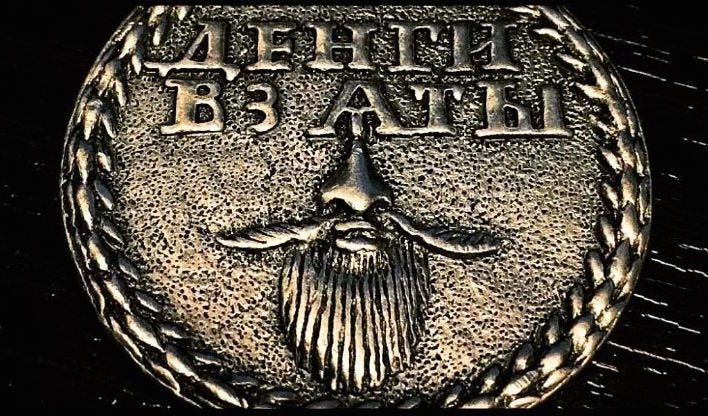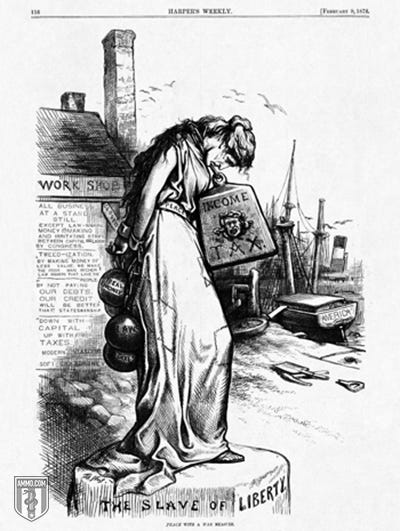Taxes are an emotive issue. The amount of tax we pay – this is “Daylight Robbery”. How often have we said this! Strange, but the origin of the phrase itself lies in taxation.
Robbing Daylight
Today we use the phrase “Daylight Robbery” as a figure of speech to highlight an unfair transaction so obvious, it means the victim is being robbed in broad daylight. But when the phrase entered English lexicon, it meant robbing someone of their daylight. If you are wondering how someone can be robbed of daylight, well it was done literally both in England and France for a century and half.
When William III became the monarch of England after the Glorious Revolution, he inherited a country in shambles and bankrupt. Having exhausted all forms of revenue generation, he then in 1696 introduced a “Window Tax”. It basically meant the more windows you had in your house, the more tax you paid. Because of this, people started boarding up their windows to avoid the tax, which meant less daylight entering their homes. This is when people started using the phrase “Daylight Robbery”.
For us it might sound nonsense, but this continued well into the nineteenth century. The first motion to repeal this was introduced in the parliament in early 1840’s with the MP’s shouting “Daylight Robbery” but failed to pass. Finally, it was repealed in 1851. France which also had a similar tax took another 75 years before getting rid of it. London still has buildings from the eighteenth century, which highlight this strange tax. While many new buildings came-up without or minimal number of windows, many older dwellings boarded up or used bricks to close their existing windows.
This story definitely resonates with me and probably will with many of you. Benjamin Franklin, famously said, “But in this world nothing can be said to be certain, except death and taxes.”
Many years ago, a Chartered Accountant friend of mine told me over a drink, that we pay about 60% of our income in taxes. I found it incredulous and when I researched it turned out to be true. Many have studied the direct and indirect taxes we pay and yes, it is around that 60% of our income.
“Daylight Robbery” indeed!
Making Egypt Great Again
Rosetta Stose is probably the most important discovery in Egyptian archaeology, discovered in the city of Rosetta during the Napoleon’s invasion of Egypt in 1799. It is a stele with three versions of a decree issued by King Ptolemy V Epiphanes in 196 BC. The top and middle texts are in ancient Hieroglyphic and Demotic scripts, while the bottom is in ancient Greek. The same decree was written in three versions, making it the key to deciphering the Hieroglyphs.
So, what exactly was written on the Rosetta Stone? In essence it was a tax document 😊
At the time when the Rosetta Stone was inscribed in 196 BC, Egypt was mired in a decade-long civil war, which started when the Egyptian soldiers returned from a long military campaign of conquest and found that new taxes were imposed during their absence. They would have none of these taxes and revolted, starting a civil war.
In a desperate attempt to end the civil war, the boy king Ptolemy V issued a “Proclamation of Peace”. The most significant part of it was general amnesty for the rebels including freedom for tax debtors who had filled Egypt’s prisons. Tax debts were forgiven, and fugitives were invited to return to Egypt to reclaim their confiscated property. But the most important part of the proclamation was a tax amnesty for the temples, as was the custom during the reign of earlier pharaohs. This meant that priests would pay no taxes on their crops, vineyards, and land. The Rosetta stone was basically about Ptolemy capitulating to the masses; especially the wealthy priests, who now stood to benefit immensely from the tax cuts.
You see, tax cuts and appeasing the people, which actually benefit the rich is nothing new under the Sun. The great success of Ptolemy’s tax cuts was a formula that has been copied and repeated over the last two millennia, by rulers across the world and of course, the rich have always been the biggest beneficiaries.
Money Does Not Stink
Governments across time have always found new ways of generating revenue!!
In ancient Rome, a tax on the disposal of urine was first imposed by Emperor Nero and later re-enacted by Vespasian around 70 AD, in order to fill the treasury.
Ancient Romans valued urine for its ammonia content, and it also contains a wide variety of minerals and chemicals such as potassium and phosphorus. They found it to be a natural cleaner for dirt and grease and was valuable for laundering clothes and believed that urine whitened their teeth and protected them from cavities. And like all valuable products, there was a scheme to tax it.
Vespasian imposed a urine tax on the distribution of urine from Rome's public urinals, where the lower classes urinated into pots and later emptied into cesspools. The urine collected from these public urinals was sold as an ingredient for several chemical processes and the buyers paid the tax. When Vespasian's son Titus complained about the disgusting nature of the tax, his father held up a gold coin and asked whether he felt offended by its smell? When Titus said "No", Vespasian replied, "Yet it comes from urine". The phrase “Pecunia non Olet” is still used today to say that the value of money is not tainted by its origins.
I Came, I Saw, I Conquered, and I Taxed
Domesday Book was a comprehensive survey and record of all the landowners, property, tenants, and serfs of medieval Norman England. It was compiled in 1086 under the orders of William the Conqueror, after he became the ruler of England post his victory at Battle of Hastings in 1066 AD. It is a unique record and is packed with statistics and details. The most likely reason for compiling this book was to determine who legally owned what for the purpose of future application of taxes.
When William conquered England, he had a limited knowledge of people’s wealth and property in the country. There was always a threat of rebellions and invasions and he needed to raise funds to maintain a standing army. He needed to find out who owned land, and how much wealth every person had, so he could tax them accordingly and raise the necessary funds. He sent people across England to survey and create a detailed record of:
· Who owned the land and how much was it worth?
· How many people lived on the land?
· How much woodland was on the land?
· How many animals were on the land?
· What buildings were on the land?
· How much were the land and goods worth in 1066, when William took over?
· How much were the land and goods worth in 1086, at the time of the survey?
The detailed records made it possible for taxes to be raised and these helped William and the future rulers administer the country. The total value of land listed in the Domesday Book was around £73,000 and William's share was around £22,500 per year, a literal princely sum a millennium ago. In today’s money, William would be one of the ten richest men of all time. The Domesday Book was the most detailed account of life in England, until the first national census was carried out in England in 1801.
Gillette Would Have Loved It
A few years ago in 2016, Archaeologists in Russia found coins from 1699, that were issued as a proof of compliance with the “Beard Tax,” which Tsar Peter the Great had introduced the year before. The beard tax policy required men who wished to keep their beards to pay up or be shaved by the police. In return they received tokens like the one recently found. The coin, embossed with lips, a curving moustache, and a groomed beard, as well as “money paid” in Russian was one of 5,000 historic coins found in the remains of a 17th-century building.
In 1697, Peter undertook a tour of Europe. After spending time touring various countries and visiting royal courts, he concluded that Russians were behind culturally to Europe and they needed to catch-up. In 1698, Peter instituted a beard tax as part of an effort to bring Russian society in line with Western European models. To enforce the ban on beards, the tsar empowered police to shave forcibly and publicly those who refused to pay the tax. If you were a bearded man in St. Petersburg, you paid a tax, a few kopecks for peasants, a hundred roubles or more for nobles or military officials.
The beard tax was just one part of a larger project, that Peter instituted to modernize Russia. He also ordered his people to replace their familiar long Russian overcoats with French or Hungarian jackets. Mannequins set outside the Moscow city gates illustrated the new fashions for all to see. Tailors who continued to sell Russian styles could end up paying huge fines and anyone seen walking the streets in an old-fashioned robe was liable to have it shredded by the Tsar’s inspectors.
Wars and the Origins of Income Tax
It is painful, but we all have come to accept Income Tax as a part of life, and it is generally accepted as a central part of any tax system. While many governments and populist leaders might talk about abolishing or eliminating taxes, they are mostly about taxes of the other kind and not the ones related to Income. They may promise to slash the rates at which it is applied, but rarely does anyone talk of abolishing the income tax altogether.
Income taxes are a recent phenomenon in Human experience, about two hundred years old. In 1797, amidst the war with Napolean's France, things were not going well for Britain. France had already conquered the Low Countries, there was a mutiny in the navy, and in a series of stunning victories, Napolean had taken northern Italy and forced Austria, Britain’s principal ally, out of the war. This was going to be a long and expensive war and rising interest rates on government debt meant, people had lost confidence. William Pitt, the then Prime Minister and the chancellor of the exchequer introduced a series of taxes, but still revenue was being outpaced by spending.
Something more radical was needed. All half measures having failed, a full-blown income tax was introduced in 1799 on all British subjects, and on all residents of Britain, on their total income from all sources and all countries, and on all income from British property even if received by foreigners. People were simply to declare their total income and be taxed on it. Incomes below £60 were exempt, with a top rate of 10 percent on incomes of £200 or more. It was an unpopular tax given the complexity, the act running to 152 pages and the rate applied increased in 28 tiny steps from 0.8 percent to the top 10 percent.
This was abolished after peace of Amiens but was reintroduced in 1803. This time it was different and was not a sum of all income but was applied separately to five different categories of income. Even more significant was an attempt to make widespread use of withholding (“stoppage at source,” as it was then called), the government taking its cut before the income reached the recipient, by requiring tenants, employers, companies, and others to deduct tax when making a range of payments and remit the money to the government. This was a super success and it more than tripled the number of taxpayers and proved so effective that by the end of the war 20 percent of all tax revenue was generated through it. While it was intended to be a war-time measure, its success, and the ensuing need to cope with the war debt, made it an integral part of tax system.
In the United States, in 1862, with the Civil War draining government coffers, Congress passed the Revenue Act, creating the first-ever federal income tax. This law required US citizens to pay the government taxes based on their yearly income. There was no tax on incomes under $600, but folks earning $601 to $10,000 paid 3 percent. The wealthiest people, those earning more than $10,000 per year, paid 5 percent. The 1862 law was actually the second wartime effort to create in income tax. The Revenue Act of 1861 attempted to tax those earning more than $800 at 3 percent, but it was not enforceable. In 1913, the Sixteenth Amendment to the United States Constitution made the income tax a permanent fixture in the US.
Final Words
Tax has been part of human experience from time immemorial, from the time of Mesopotamian rulers collecting 20% of agricultural produce to the Value Added Tax (VAT) of the modern times.
Edward Gibbon, the brilliant historian of Roman empire and keen observer of human condition, observed rightly in 1946:
“The obscure millions of a great empire have much less to dread from the cruelty than from the avarice of their masters; and their humble happiness is principally affected by the grievance of excessive taxes, which, gently pressing on the wealthy, descend with accelerated weight on the meaner and more indigent classes of society.”
There is no way for us to escape tax and governments have and will find innovative ways to raise revenue. It was beautifully summed-up by Ronald Reagan.
"Government's view of the economy could be summed up in a few short phrases: If it moves, tax it. If it keeps moving, regulate it. And if it stops moving, subsidize it."











^ How to BARRICADE (if not banish!)'tax' - A Long HISTORY of ...
A GOOD FEED , enticingly for FREE !? - Not sure, for how long ! Who knows or can guess when the ubiquitous tax gatherer (or THE EMPOWERED TEAM- now that has become the fashion to function, - no longer as an individual, to ward off any personal responsbility/answerability ) will think of robbing we, of the pleasure of reading any such FEED for free !? The lurking fear -uncertain though, is under the so called 'indirect tax' REGIME - with the new wave thinking of 'RCM' , a tool , firmly in place, for an easy catch, with no bait !
'i come ' ; 'i conquer' < Are not those good old days gone for ever,- when there was need to 'conquer' , before subjucating/subjecting anyone across the border,- beyond the 'extra territorial jurisdiction' # , to 'domestic tax'- be it 'constitutional' - legitimate or legal OR otherWISE?!?
# Open skies above- with no such barrier in space !!
Good one Peri sir. Nice Read.